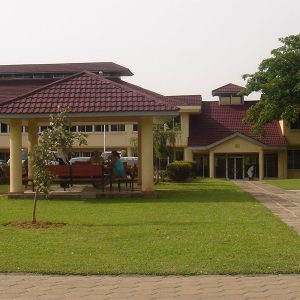CENTER FOR GLOBAL HEALTH RESEARCH (CGHR)-KISUMU

Overview
The Centre for Global Health Research (CGHR) is located in Kisumu, Western Kenya. The facility was originally inherited from the former East African Medical Research Council.
In 1984, the station was named Malaria and Other Protozoal Diseases Centre (MOPDC) later changing to Vector Biology and Control Research Centre (VBCRC), then Centre for Vector Biology and Control Research (CVBCR) and finally Center for Global Health Research (CGHR). The Centre is today one of the 15 Research Centres of the Kenya Medical Research Institute (KEMRI). The Centre is strategically located in Kisumu City, western Kenya region, in an area that is endemic for major infectious diseases. READMORE
Mission
Our mission is to improve human health and quality of life through research, capacity building, innovation and service delivery
Mission
Our vision is to be a leading centre of excellence in research for human health.
Mandates
- To conduct evidence based research aimed at providing solutions for the reduction of infectious, parasitic, non-infectious diseases and other causes of ill-health in Kenya.
- Provide training and capacity building in public health
- Provide leadership in human health research READMORE.
Achievements
Evidence on best Deworming strategies to be employed for Mass Drug Administration (MDA) against Helminth infections:
Preventive chemotherapy is considered the key component in the control of Schistosomiasis and intestinal worms, and among questions that have been addressed on our research platform is how different deworming strategies (whether community-wide or school-based) impact on morbidity in areas with different infection prevalence thresholds. Some of the data from our Schistosomiasis Consortium for Operational Research (SCORE) studies is currently being shared with the Ministry of Health in order to provide evidence on the best combination of deworming strategies based on prevalence thresholds, both in terms of duration and frequency of MDAs.
Evidence of Schistosomiasis in pre-school age children (< 5 years) and need for change in deworming policy: The WHO recommended control strategy of Schistosomiasis is based on preventive chemotherapy interventions targeting the majority of the at-risk population. READMORE
Ongoing Projects
- A demographic surveillance system (DSS) in the previous bed net study area aimed at establishing a high quality surveillance system in a population of 135,000 and provide an infrastructure that will yield reliable demographic
data and serve as a platform to evaluate the impact of public health interventions on morbidity and mortality. - Population genetics of malaria vectors.
- The effects of climate change on human health.
- The epidemiology and immunology of malaria epidemics in the highlands. READMORE
Ongoing Projects
- A community-based trial on the impact of insecticide-treated bed nets on childhood morbidity and mortality in an area of intense and perennial malaria transmission in western Kenya,
- The interaction of malaria and HIV in pregnant women and the immuno-epidemiology of malaria in western Kenya,
- The Asembo Bay Cohort Project.

Dr. STEPHEN MUNGA
Dr. Stephen Munga is a highly experienced, researcher, technical advisor and public health manager. He has been a technical advisor to World Health Organization in Kenya, Botswana, Namibia and Uganda Malaria Program Reviews (MPRs).
He has conducted desk review of Malaria Epidemic Preparedness and Response/Indoor Residual Spray program and Vector Control components of the National Malaria Control Programs and wrote two manuscripts from the Kenya Malaria Review Program Final Report.
Contact Info
Kenya Medical Research Institute
Centre for global health research
P.O Box 20778-00202 Kisumu Tel: +254 020 2726781
+254 020 2722541, +254 020 2713349, 0722205901
0733400003.
Email: gro.irmek@rhgc
